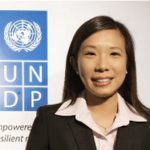We live in a world of worry. The ongoing Covid-19 pandemic, having driven reversals in human development in almost every country, continues to spin off variants unpredictably. War in Ukraine and elsewhere has created more human suffering. Record-breaking temperatures, fires, storms and floods sound the alarm of planetary systems increasingly out of whack. Together, they are fuelling a cost-of-living crisis felt around the world, painting a picture of uncertain times and unsettled lives.Uncertainty is not new, but its dimensions are taking ominous new forms today. A new “uncertainty complex” is emerging, never before seen in human history. Constituting it are three volatile and interacting strands: the destabilizing planetary pressures and inequalities of the Anthropocene, the pursuit of sweeping societal transformations to ease those pressures and the widespread and intensifying polarization.This new uncertainty complex and each new crisis it spawns are impeding human development and unsettling lives the world over. In the wake of the pandemic, and for the first time ever, the global Human Development Index (HDI) value declined—for two years straight. Many countries experienced ongoing declines on the HDI in 2021. Even before the pandemic, feelings of insecurity were on the rise nearly everywhere. Many people feel alienated from their political systems, and in another reversal, democratic backsliding has worsened.There is peril in new uncertainties, in the insecurity, polarization and demagoguery that grip many countries. But there is promise, too—an opportunity to reimagine our futures, to renew and adapt our institutions and to craft new stories about who we are and what we value. This is the hopeful path forward, the path to follow if we wish to thrive in a world in flux.
Speakers:
 Yu-Chieh Hsu (Human Development Report Office)
Yu-Chieh Hsu (Human Development Report Office)
Yu-Chieh is a member of the Human Development Report Office (HDRO)’s statistics team, working on the measurement and evaluation of human development and gender equality. Her work focuses on the Human Development Report (HDR)’s Human Development Index (HDI) and gender-related composite indices and indicators. Much of her research has been centered on health, education, gender, and inequality. She joined the HDRO as a Statistics Postdoctoral Consultant in 2014. Before coming to UNDP, she was a Senior Research Analyst at the National Opinion Research Center (NORC). During that time, she was jointly appointed as a Postdoctoral Fellow at the Harris School of Public Policy at the University of Chicago.Yu-Chieh graduated from Carnegie Mellon University with a PhD and MPhil in Public Policy and Management. She also holds a Master’s Degree in Statistics from Columbia University. Yu-Chieh’s PhD dissertation focused on demography and applied statistics. Her work has been published in peer-reviewed journals including Demography, Population Studies, and Journal of Health Economics.
 Tasneem Mirza (United Nations Development Programme)
Tasneem Mirza (United Nations Development Programme)
Tasneem Mirza is an Economist at the United Nations Development Programme (UNDP) where she served in several roles. Currently, she is working at the Human Development Report Office as a researcher and co-author of the Human Development Report and the Multidimensional Poverty Index Report. Tasneem also worked with the SDG Integration Team at UNDP supporting countries to prioritise and make progress on the Sustainable Development Goals, and the Regional Bureau for Asia and the Pacific at UNDP providing policy and advisory services to country offices. Prior to UNDP, Tasneem worked at the Asian Development Bank HQ in Manila, where she initially joined as a Young Professional. There she supported projects and programs to promote trade and economic integration in South Asia and managed the Secretariat for South Asia Subregional Economic Cooperation jointly with the Governments of Bangladesh, India, Nepal, and Bhutan. During her graduate school years Tasneem worked at the Center for Global Trade Analysis Projects (GTAP) at Purdue University where she also completed her PhD in Economics. At GTAP she supported the development of the GTAP model/database and studied the impacts of trade liberalization policies on employment, poverty, and income.
About The series:
The Institute for International Economic Policy (IIEP) at George Washington University and the Oxford Poverty and Human Development Initiative (OPHI), with the support of the United Nations Development Programme’s Human Development Report office (UNDP HDRO), are pleased to host a special seminar series on the global Multidimensional Poverty Index (global MPI). Goal 1 of the Sustainable Development Goals (SDGs) is to end poverty in all its forms and dimensions. The global MPI offers a tool to make progress towards this goal.
Bringing together the academic and policy spheres, this series of seminars will highlight topics such as race, ethnicity, gender, and caste, the statistical capacity of nations, social protection, the use of geospatial mapping in tracking poverty, poverty and refugees, and evaluating whether we’re on track to meet UN SDG Goal #1. The sessions will also include work that applies the global MPI methodology, the Alkire Foster method, to innovative measures.
The seminars are taking place online on Mondays at 11 a.m. ET. They are open to everyone focused on improving the lived experience of those who are deprived.
 Kim Samuel is a Visiting Scholar at the Oxford Poverty and Human Development Initiative, where she studies the relationship between social isolation and multidimensional poverty as well as the broader link between human belonging and well-being. She is the founder of the Samuel Centre for Social Connectedness and an academic lecturer at institutions including Oxford, Harvard, and McGill universities. Kim is the author of
Kim Samuel is a Visiting Scholar at the Oxford Poverty and Human Development Initiative, where she studies the relationship between social isolation and multidimensional poverty as well as the broader link between human belonging and well-being. She is the founder of the Samuel Centre for Social Connectedness and an academic lecturer at institutions including Oxford, Harvard, and McGill universities. Kim is the author of  Prenika Anand is a Leslie Kirkley Visitor at the Oxford Institute of Population Ageing. Prenika has completed an MSc in Applied Digital Health from the Nuffield Department of Primary Care Health Sciences, University of Oxford. She holds a Masters degree in Health Administration from Tata Institute of Social Sciences, Mumbai, and a Bachelor’s degree in Dental Surgery. Her professional experience includes product management and consulting for preventive health, workplace well-being, economic incentives for healthy behaviors and digital health management ecosystem.
Prenika Anand is a Leslie Kirkley Visitor at the Oxford Institute of Population Ageing. Prenika has completed an MSc in Applied Digital Health from the Nuffield Department of Primary Care Health Sciences, University of Oxford. She holds a Masters degree in Health Administration from Tata Institute of Social Sciences, Mumbai, and a Bachelor’s degree in Dental Surgery. Her professional experience includes product management and consulting for preventive health, workplace well-being, economic incentives for healthy behaviors and digital health management ecosystem. Yu-Chieh Hsu (Human Development Report Office)
Yu-Chieh Hsu (Human Development Report Office) Tasneem Mirza (United Nations Development Programme)
Tasneem Mirza (United Nations Development Programme)